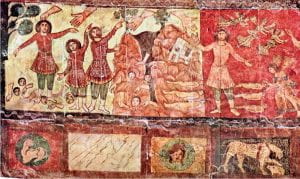Please join us on Monday, May 20th at 5pm in Swift 201, for a presentation by:
Omar Kamal
CMES, University of Chicago
“Late 19th and Early 20th Century Responses and Communication from Palestinian Bedu and Fellahin Regarding the New Yishuv”

During Ottoman Palestine’s finalizing decades, the first Zionist Aliyot (1881-1914) introduced labor-focused and self-sufficient settlements emphasizing land and agricultural ownership. Distinct from the previous Old Yishuv, Zionist migrations comparatively lacked religious motivations and generally rejected economic co-dependencies developed from cohabitation with native populations, conveying Zionist migrations’ economically and politically independent approaches and goals. This analysis strives to provide primary sources presenting subaltern Palestinian responses to the emergence of the New Yishuv and secondary sources surveying these first-hand accounts as well as other material pertaining to this topic. Particularly focusing on sources related to petitions submitted by the Fellahin and Bedu to Istanbul, this paper will showcase the changing relationships between rural Palestinian communities and Zionist settlers of the First and Second Aliyot as well as Jews generally. A part of numerous disputes between the two respective parties, these petitions also offer insights into the interpersonal and communal conflicts that would greatly shift from inter-community resource clashes to rising binational struggles. Providing an approach that situates rural intercommunal conflict and the burgeoning nationalization of Arab and Palestinian identity among Arab elites as codependent events in the formation of Palestinian awareness, fear, and rejection of Zionism. In addition to reexamining scholarly prevalent conclusions that place early Arabist thought among Palestinian largely urban elite and intellectual communities as virtually the earliest clear indications of an anti-Zionist movement despite the preceding early Arab rural encounters against Zionism.
The paper, to be read in advance of the workshop, can be accessed here (password: settlement): kamal-conference draft







